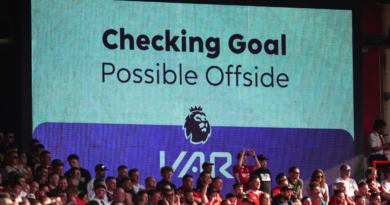Virginia to look at its 'system' after First Four exit
DAYTON, Ohio — For almost 14 minutes of game time and nearly an hour of real time, the ball didn’t go through Virginia‘s basket even once.
The Cavaliers have been vulnerable to sluggish offensive outputs — both this season and in the past — but Tuesday’s lull was particularly painful. Virginia occupied a spot in the NCAA tournament that many felt should have gone elsewhere, to a Big East team or perhaps Indiana State. Cavaliers coach Tony Bennett said his team had “maxed out” its regular-season potential and came to the First Four with genuine excitement.
Instead, Colorado State was the team that validated its placement and showed it perhaps deserved a stronger seed. The 10th-seeded Rams smothered fellow 10-seed Virginia’s offense and, perhaps more surprisingly, found cracks in the Cavaliers’ signature defense, cruising to a 67-42 win at UD Arena.
Colorado State advanced in the Midwest Region and will next face No. 7 seed Texas in a first-round matchup Thursday in Charlotte, North Carolina.
“We felt like we had an opportunity to win here tonight, but that’s a Hall of Fame coach over there,” Rams coach Niko Medved said of Bennett. “That’s an incredible program, one that I have an unbelievable amount of respect for. So I didn’t see this coming tonight at all.”
After Virginia star Reece Beekman sank two free throws with 9:20 left in the first half, the Cavaliers would not score again until Beekman’s jumper with 16:37 to play in the contest. The drought included 19 consecutive missed shots and spanned 13:53 of game time and 59 minutes of real time, which included a 20-minute halftime.
Colorado State held Virginia to five field goals and 14 points in the first half, the fewest for an ACC team in the first half of an NCAA tournament game since Wake Forest scored 10 against Butler in the first round in 2001. Virginia reached 40 points with 1:59 left in the game, avoiding its own record for fewest points by an ACC team in the Big Dance (39 against Florida in 2017).
“They’re one of the slowest, if not the slowest-playing team, offensively, in the country,” Medved said. “But if you look at us, we’re one of the top two in the country in defensive tempo, meaning we force teams to play late in the shot clock.”
Rams guards Nique Clifford and Josiah Strong held Beekman and Isaac McKneely, Virginia’s top two scoring options, to a combined 6-of-29 shooting. After a 27-point first half of its own, Colorado State consistently found gaps in Virginia’s trademark defense, as forward Joel Scott (23 points) and Clifford (17) triggered a 40-point second half for the Rams.
“We didn’t let them take us out of our game plan,” Clifford said. “We stuck to what we do and just were confident in it.”
Bennett said Virginia’s defense “unraveled.”
“They did a good job pressuring the ball, being in the passing lanes and in the gap,” Cavs guard Beekman said. “I think we ran some good offense today, as well. The shots weren’t falling.”
Clifford said Colorado State “took it a little personal” being a 10-seed assigned to the First Four after going 4-1 against Quadrant 1 and Quadrant 2 opponents in nonconference play and 9-9 against Quadrants 1 and 2 in the Mountain West.
The Rams won their first NCAA tournament game since 2013.
“Hard to imagine tonight going any better for us,” Medved said.
Tuesday’s outing couldn’t have gone much worse for Virginia, although the team’s offensive struggles weren’t a complete surprise. The Cavaliers came in last in the ACC and 344th nationally in scoring offense (63.6 PPG). They twice scored 41 points in losses and scored fewer than 50 points seven times, their most in a season since 1947-48 (8).
Virginia lost its first NCAA tournament game for the fourth time in its past five appearances while winning a national title in the other (2019).
“We’ve raised the bar really high here. We’ve qualified for this tournament, which is not an easy thing. We’ve done well,” Bennett said. “But it’s stung to get to this point and not advance. Of course, we have to keep adding quality players. We’ve got to look at things, certainly, from a system standpoint.”




